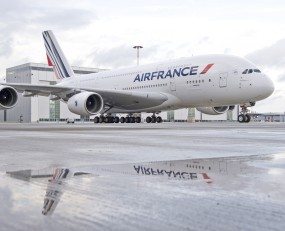
The equity valuation of Air France-KLM has been under a huge amount of pressure in the past few weeks, and rightly so.
Brexit is only partly to blame for a share performance that has dropped 15% this year, and by 33% since a 52-week high of €8.84 in early March.
These are turbulent times for French companies, amongst them AF-KLM, and its business life is characterised by strained relationships with trade unions, although pilots eventually called off a four-day strike last week.
Its interim results, due on 27 July, will provide more clarity about the impact of the actions on cash flows and earnings in the second quarter, although sluggish revenue growth, which is highly likely, ought to have rendered its ambitious annual targets more difficult to achieve, while rising fuel costs could have diminished its earnings power.
Its first-quarter results in early May showed that the group is carefully managing its cost base, although excluding fuel operating costs rose “by 2% and by 0.3% on a like-for-like basis” year-on-year. Like-for-like figures did not include currency changes.
Flat revenue and falling fuel costs – down to €1.1bn from almost €1.5bn year-on-year – pushed up operating income in the first quarter, but Air France’s balance sheet still carries very significant borrowings. While it is churning out free cash flow, its net debt still hovered around €4.16bn, down €146m year-on-year.
AF-KLM acknowledged that 2016 remains highly uncertain due to “fuel prices, the continuation of the overcapacity situation on several markets and the geopolitical and economic context in which we operate”.
As a consequence, it expects “savings on the fuel bill to be significantly offset in the coming quarters by unit revenue pressure and negative currency impacts”.
Under these circumstances, it maintained guidance for 2016, with free cash flow of between €600m and €1bn after disposals. Meanwhile, investment of between €1.6bn and €2bn and divestments of up to €500m will be “adjusted depending upon operating cash flow generation”, which is of paramount importance along with a unit cost reduction target of around 1%, and further reduction in net debt.
The worst performing unit was cargo, which is still burning cash, although EBITDA losses narrowed year-on-year. “The group continued to restructure its cargo activity to address the weak global trade and structural air cargo industry overcapacity,” it said.
Tonnes, capacity and traffic figures were all down in the first quarter, and unit revenue fell 15.4% year-on-year, but the drop was more pronounced on a like-for-like basis. Transavia and the maintenance division provided some relief, but the core passenger business could end up being the most problematic unit given its growth prospects in a more competitive environment.
Source: Transport Intelligence, June 29, 2016
Author: Alessandro Pasetti